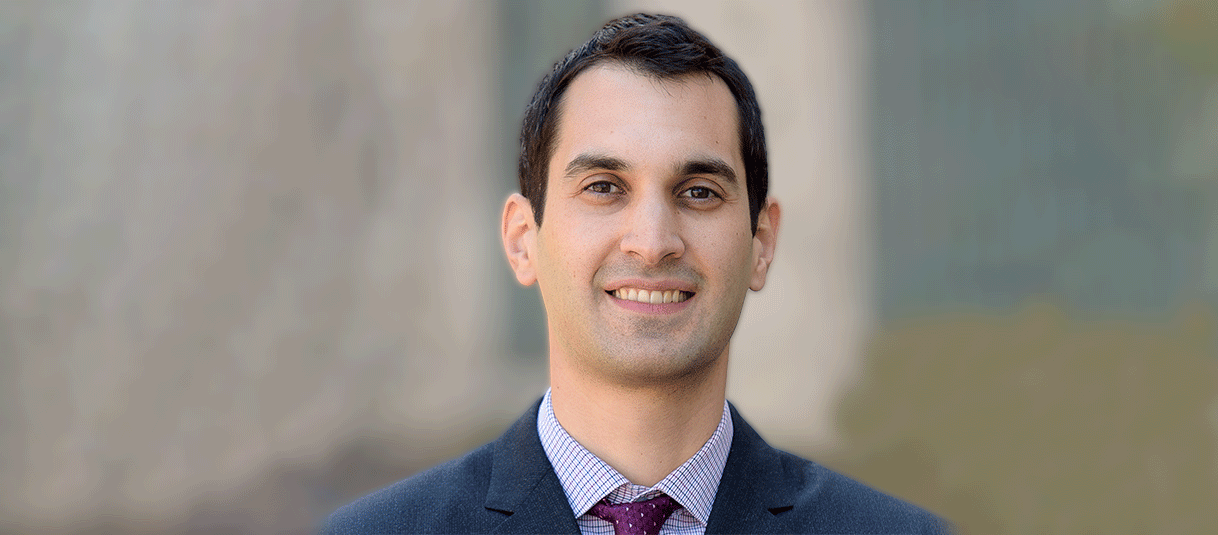Faculty Spotlight: Sinan Keten
Questions and Answers
1. Where were you born and where did you study (undergrad, grad, post-doc)?
I was born in Istanbul, Turkey (Turkiye). I did my undergraduate studies at Bogazici University in Civil Engineering. I received my Master’s and Ph.D. degrees at MIT in Civil and Environmental Engineering. I joined Northwestern soon after finishing my degree.
2. How long have you been at NU & briefly describe your research program?
I have been at Northwestern for 12 years. My research focuses on computational materials science and mechanics with an emphasis on understanding the mechanical behavior of polymer nanocomposites, biomolecular and bioinspired materials, and structural materials
3. What courses do you teach?
I teach CIV ENV 320 - Structural Dynamics and ME 416 – Computational Nanodynamics. I have taught Engineering Analysis 2 and ME 418 Multi-scale Modeling in the past.
4. Did you always know you would become a professor? What attracted you to an academic career?
I didn’t, but I suspect my grandma did! She used to call me “professor” when I was maybe four or five years old because I wore glasses. Perhaps she was planting a seed! Helping others makes me happy. There are many ways to help, but I believe teaching and research advising generates a large, direct impact on people’s lives. Moreover, it grows exponentially as they carry on and disseminate their knowledge. I also value the boundless freedom an academic career offers. This enables me to study any topic that I am deeply curious about, without worrying about things like generating revenue or being pressured to generate impact immediately. That’s priceless in my mind.
5. What is the most challenging part of your job?
I think it is probably dealing with uncertainty. It is built-in to every aspect of our job, and this is perhaps non-obvious to those outside of academia since tenure offers some degree of job security. However, excelling in research requires you to set very ambitious goals, which nearly ensures that there is often no clearly visible, straight path to success. There are unexpected challenges and “failures” in the journey from getting preliminary results, obtaining funding, publishing, and managing your team and your own time. This requires a lot of “educated” guesses on what the future might bring. No pun intended! It is a great deal of responsibility, especially when you are advising doctoral students who rely on you for guidance and perhaps for funding. Even if you excel at writing grants, you often fail many times before you succeed in getting an idea funded. This can be very disheartening. How should we deal with failure? A long while back, I was just beginning to learn to play drums and we had a big concert coming up. I had crippling stage fright and tremendous fear of making a mistake. I had a teacher who told me the that what matters is not the failures but how we recover from them. It is a variant of a common saying. He told me that I should practice hard, but still, a mistake will very likely happen. It will be how I compensate for the mistake that will define the performance. I think it was excellent advice and applies to many situations. There was no fear from that point on.
6. What do you consider your most significant research finding or accomplishment thus far?
It would be unfair to single out any particular accomplishment.
7. Is there someone or something that has inspired you?
I think my family was the biggest influence. They emphasized being a lifelong learner, being kind and caring, and not giving up my integrity no matter what. I tried to follow their lead and had many wonderful teachers that made sure of it. Academically, having the chance to do independent studies with my professors at Bogazici was pivotal. They always had their door open and had seemingly boundless energy to teach, and that deeply influenced me. MIT was also a surreal, life-changing experience. These days, I take inspiration from my esteemed colleagues at Northwestern, and the wonderful students I get to work with.
8. What do you do for fun when you are not working?
I play drums and spend time with my family. Our 3-year-old son is learning to lay down some good beats and might take the throne soon.
9. How do you explain what you do and why it is important to someone who isn’t a scientist or engineer?
I explain that we try to understand what makes materials fail when they are subject to excessive loads. I go on to say that modeling material behavior at these extreme states gets very complicated, so we use huge supercomputers to solve these problems, and we simulate and watch individual molecules in a material snap, rearrange and break, etc. We learn a lot from this and get ideas for designing new materials, starting from their molecules. These new materials we envision eventually may help save lives by serving as anything from protective gear to structural materials. They may reduce waste by increasing the service lifetime of components and structures, or our analyses may help us find ways to make them from sustainable biological sources rather than petroleum products.
10. What is one thing that has impressed you about living in Chicago?
It is a neat city with terrific architecture, it has many different neighborhoods with diverse characteristics and very nice people.

